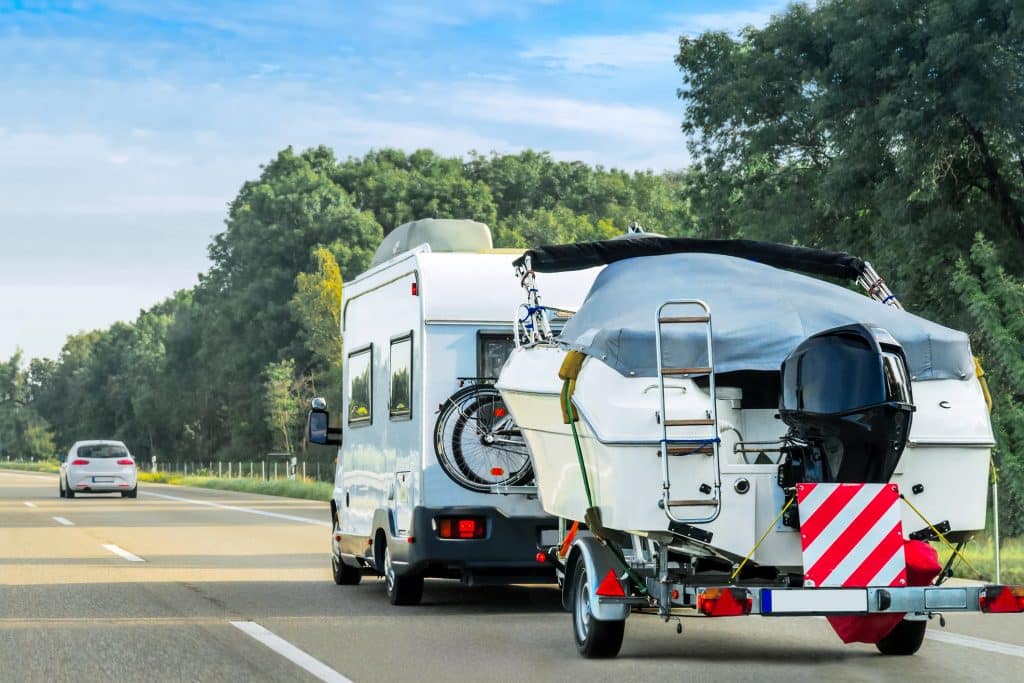It’s easy to think of yourself as Peter Fonda (well, a retired Peter Fonda, maybe) when you’re traveling down the highway in your RV. A true nomad, the open road in front of you—there’s nowhere you can’t go and nothing you can’t do.


Except that RVs—and the world of RV camping—come with a variety of restrictions. From highways to weight to the things you carry with you, it’s important to know where you’re going and what kinds of laws you need to abide by.
To document every single law would require some kind of Herculean effort that simply isn’t feasible here. Instead, this post will give you a few ideas for researching different elements of your rig to keep in mind as you travel.
(This post is NOT intended as legal advice—be sure to check local, state, and national rules and regulations before heading out on the road!)
Rig Length, Width, and Height
Traveling across the country can get tricky, because laws vary by state. The length of your trailer, for example, can go from very legal to entirely illegal by passing over some imaginary line in the road. Maximum heights vary from 13.5 ft. to 14 ft. Lengths vary from about 40 ft. to over 50 ft.
Things get more complicated when you’re talking about the combined length of two vehicles, and even more when you add another towable (a boat or another trailer, for example).
Completely overwhelmed? Don’t be. The good folks at Good Sam have put together a very handy table that gives you a good idea of where your rig will be welcome, and the varying heights, lengths, and widths of vehicles allowed on the roads.
While we’re at it, some states also require that larger vehicles stop at roadside weigh scales. Check state regulations to know if you need to stop.
Drivers Licenses
In short, the odds are heavily in your favor that you are able to drive your RV with your standard drivers license.
However, some RVs are big. Like, really big. Bordering on the size of a semi, big. And because we’re a responsible society, we don’t just let anyone get behind the wheel of a very large vehicle without proving that they’re capable of driving it safely and responsibly—and proving you can turn a corner without taking out every lamp post on the sidewalk
To reiterate, this won’t apply to the majority of RVs. But if you’re driving a particularly large Class A or doing additional towing, you’ll want to check your rig—and if you don’t know, your dealer or manufacturer should be able to provide you the information you need.
Trailer Regulations

Some states also require that trailers be equipped with safety devices like equalizing hitches, sway control, and independent brake systems. Some heavier trailers may also require breakaway brakes.
Campground Rules

After all of that, the seemingly-insignificant rules of campgrounds can seem minor, but they’re still very important. Every campground will have some kind of restrictions in place for the safety and comfort of every camper.
Many campgrounds and national parks restrict carrying in firewood—or at least wood that isn’t purchased locally. And this isn’t a cash grab. Firewood can carry invasive species that spread to new areas through travel like this. It’s one of the ways the Emerald Ash Borer got around, and it’s been wreaking havoc on ash trees across the country.
Otherwise, you can expect campgrounds and national and state parks to restrict things like glass containers and fireworks. And while it should go without saying, we’ll say it anyway: if it’s illegal, don’t bring it with you.
Some of these rules may apply to your rig, and some may not. If you have questions, the experts at Camping World will be happy to help outfit you with a rig that meets your every need—and the rules of every state you intend to travel in.

.png)





No comments:
Post a Comment